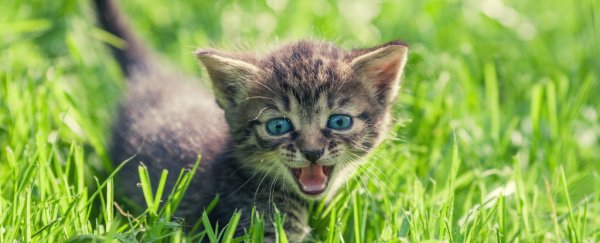Cats are great manipulators, a fact that was solidified back in 2007 when researchers found that our feline friends actually domesticated themselves to eat our food some 12,000 years ago. Now a new study hopes to see if cats actually pick up the dialect of their owner to communicate their needs more effectively.
Yes, cats may develop accents just like we do. According to one of the team, Susanne Schötz from Lund University in Sweden: "We know that cats vary the melody of their sounds extensively, but we do not know how to interpret this variation. We will record vocalisations of about 30 to 50 cats in different situations - e.g. when they want access to desired locations, when they are content, friendly, happy, hungry, annoyed or even angry - and try to identify any differences in their phonetic patterns."
So, in an attempt to understand these vocal shifts, Schötz and her team will conduct a five-year study to see how intonation, voice, and speaking style affect 'cat speech'. The team will pull this off by analysing the speech of cats based on the region where they live. This phonetic analyse, in essence, hopes to see if your furry friend has developed your speaking patterns.
"We want to find out to what extent domestic cats are influenced by the language and dialect that humans use to speak to them, because it seems that cats use slightly different dialects in the sounds they produce," said Schötz.
Though the study sounds neat because it's sort of an odd question to pose in the first place, the team believes the results will help us understand how to better cohabitate with cats, especially since they are such a popular pet and we're now seeing more and more used as therapy animals in nursing homes and hospitals.
The study is all the more interesting because wild, feral cats often stop meowing after their mother sends them off on their own. This furthers the evidence that your cat most likely thinks you're a giant, stupid mamma cat - a theory that gained momentum in 2014 when researcher John Bradshaw published his book Cat Sense after studying them for over 30 years.
Since the study is just getting started now, we have a long wait ahead of us before we have any concrete answers. The next question is whether or not we actually want to know what our cats are saying. After all, they might have been swearing at us this whole time.
